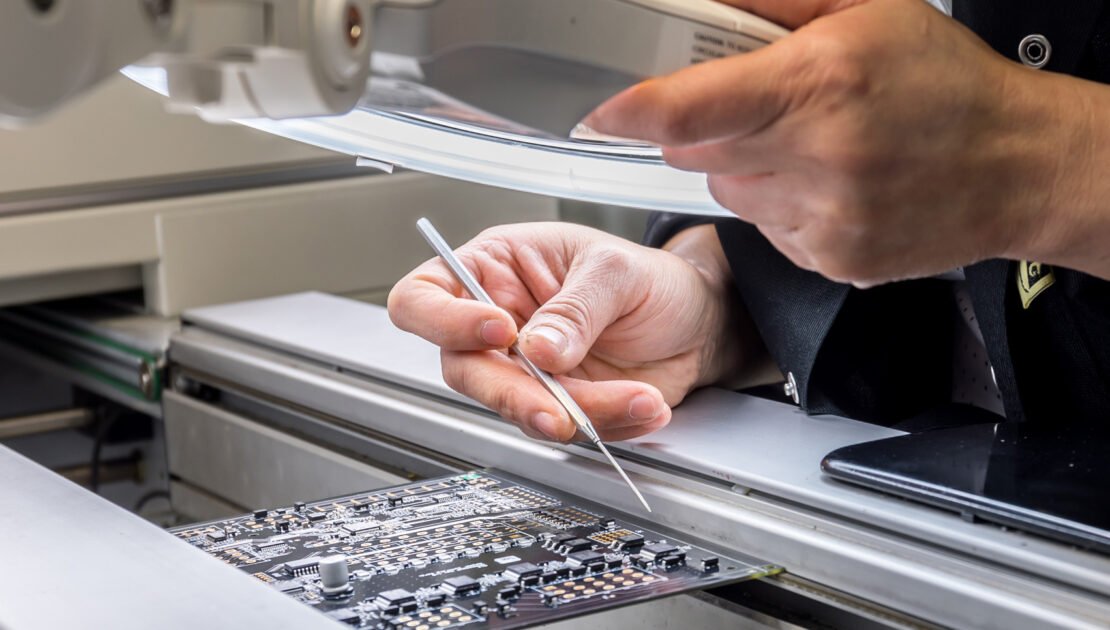Quality control is a CEM’s core-value-driven process that ensures defect-free products are manufactured. Failures in componentry or in the manufacturing process can cause adverse risk to the consumer product.
Critical service devices such as safety equipment, gas analyzers, alarm beacons, pressure controls and GPS units must be free of defects and function in the manner they were intended. Otherwise, devices not within conformance can lead to safety incidents, injuries or worse.
Such incidents and missteps affect the original equipment manufacturer’s (OEM) reputation, which can take a great deal of time, money and effort to repair. According to the Tooling U-SME Manufacturing Insights Report, 16% of manufacturers report scrap material and rework rates of more than 4% of their total sales and 63% of manufacturers are reporting scrap material and rework rates of 1 to 4% of their total sales.
Independent studies estimate that for manufacturing companies, the Cost of Poor Quality (COPQ) causes a damage of 5-30% of gross sales. The totalled COPQ amount includes the cost associated with repairs, rework, scrap, service calls, warranty claims and write-offs from obsolete products. So rigorous quality control can have a real and substantial impact on a manufacturer’s bottom line1.
It’s important to validate the significance of an effective quality management system and assign meaningful value to your purchase price. A lifecycle approach in price strategy not only stabilizes security of supply but improves gross profits.
Dynamic quality assurance
A successful quality management system is aimed at minimal deviation throughout the manufacturing process as well as the final output. This cannot be achieved with periodical reviews. Conducting regular, authoritative and actionable internal reviews increases the efficiency of production and reduces potential downtime. When quality concerns arise they must be addressed and remedied in a timely manner.
In electronics manufacturing, quality assurance standards help OEMs improve several processes such as sourcing raw materials, evaluating and buying third-party components and sub-assemblies, adhering to production and inspection protocols, and taking an agile approach in responding to product defects.
Quality: An August core value
It is a logical conclusion that your contract electronics manufacturing partner must have the right quality-related certifications and accreditation.
August Electronics offers you the assurance of our ISO 9001 certification – the globally-accepted quality management standard which covers process improvement, risk management, client satisfaction, and frequent training.
We are also in the process of acquiring our ISO 14001 certification. We manufacture electronics assemblies to IPC-A-610 Class 2 or 3 and restore electronics assemblies to IPC-7711 Class 2 or 3. We also manufacture to CSA, UL or ETL standards.
Our quality management system measures, analyzes and continually enhances our manufacturing performance to ensure predictable and repeatable outcomes so that our clients’ products are of top quality and meet their end-user needs.
At August, we find inspiration in the words of business management writer Tom Peters: “It doesn’t matter what product or service you’re offering; there is unlimited ability to improve the quality of anything.” Accordingly, we work to constantly enhance our quality control and assurance process for the benefit of our clients.
When you evaluate your next contract electronics manufacturing partner, discuss their commitment to quality and their credentials, so you can hand over your manufacturing project with confidence.
Contact us today to discuss your contract electronic manufacturing needs or to learn more about our commitment to quality.

